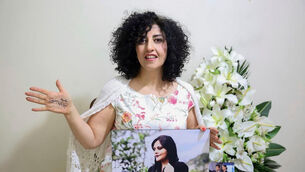Tributes to anti-apartheid fighter Sisulu
Anti-apartheid campaigners were paying tribute today to Walter Sisulu, one of the top leaders of the African National Congress, who died at the age of 90.
Sisulu, who died yesterday, had been suffering from a long illness, according to the ANC.














